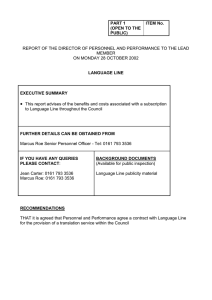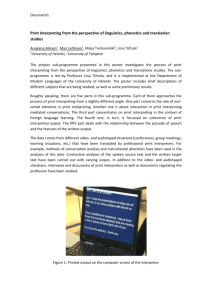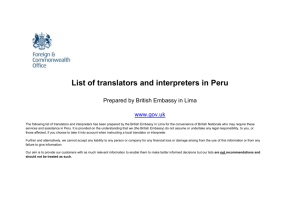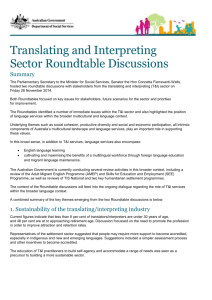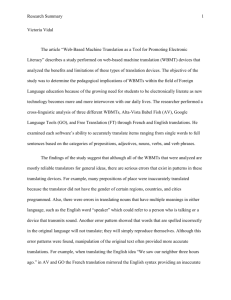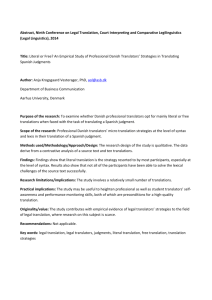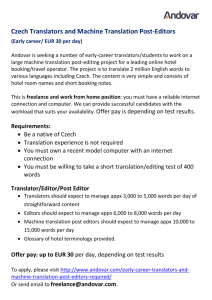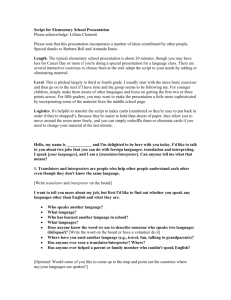Languages
advertisement
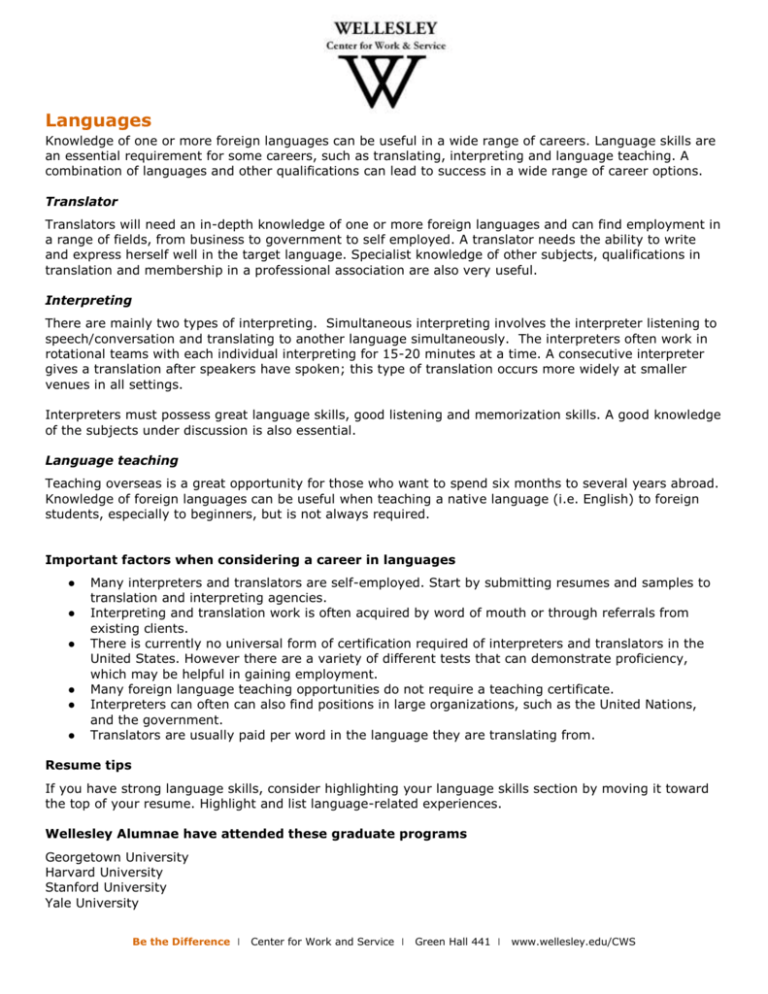
Languages Knowledge of one or more foreign languages can be useful in a wide range of careers. Language skills are an essential requirement for some careers, such as translating, interpreting and language teaching. A combination of languages and other qualifications can lead to success in a wide range of career options. Translator Translators will need an in-depth knowledge of one or more foreign languages and can find employment in a range of fields, from business to government to self employed. A translator needs the ability to write and express herself well in the target language. Specialist knowledge of other subjects, qualifications in translation and membership in a professional association are also very useful. Interpreting There are mainly two types of interpreting. Simultaneous interpreting involves the interpreter listening to speech/conversation and translating to another language simultaneously. The interpreters often work in rotational teams with each individual interpreting for 15-20 minutes at a time. A consecutive interpreter gives a translation after speakers have spoken; this type of translation occurs more widely at smaller venues in all settings. Interpreters must possess great language skills, good listening and memorization skills. A good knowledge of the subjects under discussion is also essential. Language teaching Teaching overseas is a great opportunity for those who want to spend six months to several years abroad. Knowledge of foreign languages can be useful when teaching a native language (i.e. English) to foreign students, especially to beginners, but is not always required. Important factors when considering a career in languages ● ● ● ● ● ● Many interpreters and translators are self-employed. Start by submitting resumes and samples to translation and interpreting agencies. Interpreting and translation work is often acquired by word of mouth or through referrals from existing clients. There is currently no universal form of certification required of interpreters and translators in the United States. However there are a variety of different tests that can demonstrate proficiency, which may be helpful in gaining employment. Many foreign language teaching opportunities do not require a teaching certificate. Interpreters can often can also find positions in large organizations, such as the United Nations, and the government. Translators are usually paid per word in the language they are translating from. Resume tips If you have strong language skills, consider highlighting your language skills section by moving it toward the top of your resume. Highlight and list language-related experiences. Wellesley Alumnae have attended these graduate programs Georgetown University Harvard University Stanford University Yale University Be the Difference ❘ Center for Work and Service ❘ Green Hall 441 ❘ www.wellesley.edu/CWS Resources American Translators Association Career in Languages (Wake Forest University) Careers using Languages Online Occupational Handbook: Interpreters and Translators Transitions Abroad United Nations: Interpretation, Language Services, Exams CWS Library Going Global – Country Career Guides (Access in MyCWS in the Information Resources tab) Spotlight on Careers: Teaching Overseas Paths to employment CIA Language Officer English Program in Korea (EPIK) French Cultural Services-English Assistantships in France Fulbright English Teaching Assistantships The Jet Program (The Japanese Exchange and Teaching Program) Peace Corps U.S. Army Programs and Positions U.S. Department of State, Office of Language Services Be the Difference ❘ Center for Work and Service ❘ Green Hall 441 ❘ www.wellesley.edu/CWS

